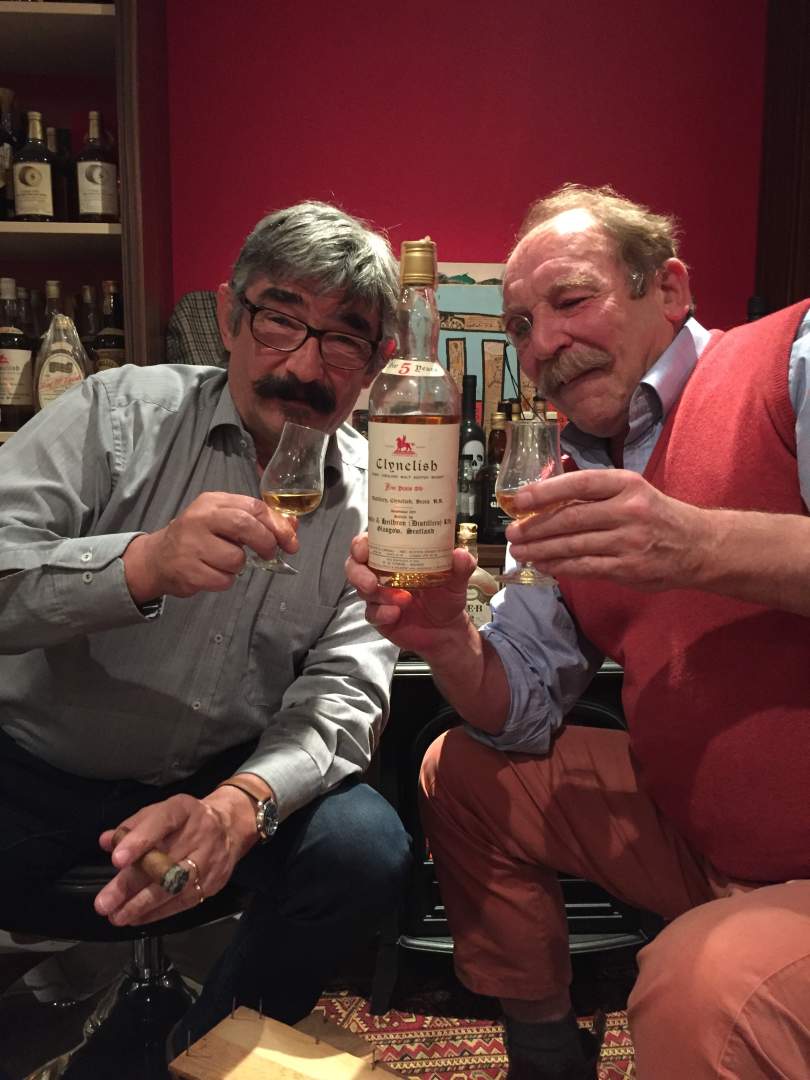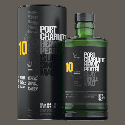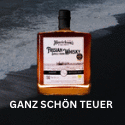Seit 2002 ist Whiskyfun, die Seite von Serge Valentin, eine Institution unter Whiskyfreunden, kann man doch dort fast täglich neue Tasting Notes finden, sei es zu Standards, zu Klassikern oder zu absolut ausgefallenen Bottlings. Immer informativ, unterhaltsam zu lesen und gespickt mit augenzwinkernden persönlichen Einwürfen sind sie ein ständiger Begleiter für alle, die sich intensiver mit Whisky beschäftigen. Und auch bei uns ist der Hinweis auf seine Notizen ein fixer Bestandteil unseres Tagesprogramms.
Gestern hat Serge Valentin seine Verkostungsnotiz Nummer 15.000 auf Whiskyfun gepostet. Für uns war das Anlass genug, um Serge um ein Interview zu bitten – über sich, seine Arbeitsweise und Whisky im Generellen. Unsere Fragen und seine Antworten finden Sie nachfolgend. Viel Vergnügen damit!

Q: Most of our readers won’t know more about you than that you are the leading source for (nearly daily) online tasting notes for the whisky community. But who’s the person behind this? Tell us a little bit about yourself, and your „life before whisky“.
Serge Valentin: Well, people should read FAQ pages on websites then. Seriously, before whisky I was more into wine as far as beverages are concerned, although I had visited my first distillery, Glenlivet, in the very late 1970s already, when I was still a teenager. Yet whisky became my main hobby only around the late 1990s, even if I was always having quite a few bottles of malt whisky in my stash since the first Glenfiddich and Cardhu ‘white label’ that had entered my home in the late 1970s. It’s still a hobby, having said that, even if many people believe I’m a professional, while I am not, not at all.
Q: How did this madness start? How did you get into whisky?
Many people are into whisky in France, as we always were, by far, the first market for Scotch in volume. Having said that we rather quaff cheaper stuff, expensive malt whisky remains a relatively new thing. But as I said, it all started with my first visit of a distillery, then trying the ‘new’ malts in the few bars that were having some in the late 1970s and early 1980s, then buying bottles as they were appearing in the market, the first Classic Malts and others. Visiting Italian collectors. Then stumbling upon Johannes and the Malt Maniacs in the early days of the Internet, joining them, sharing samples, starting to publish tasting notes as a few guys were already doing with wine – and virtually no one with whisky, then audience growing, and so on. Nothing was planned, it just happened.
Q: Is there a preferred time of day you do your tasting and if so, why?
Yes, between the late afternoon and dinner, so say 18:00 – 20:30. Fresh palate, quieter time of the day, less telephone… Or on Saturdays and Sundays in the afternoons.
Q: How do you manage to do so many tasting notes? Where do you get all these samples from and how do you manage to not drown your life in alcohol?
Very easily, it isn’t actually much. I may swallow 3 to 4cl a day on average, in line with the recommendations of the World Health Organisation. Of course, that would rather be much more for a Brora 1972, and less in the case of a Tullibardine 2007 killed in a red wine cask. Wine sommeliers do try at least fifty times more wines! The samples come from everywhere, distillers, bottlers, retailers, friends, festivals, bottles that I buy… I do not rely on any particular source. But I get much more than I can taste. In the old days you could almost try everything that used to come out, today that’s become impossible. Even the cleaning lady’s about to start a whisky business (I am joking).
Q: You always state that your notes are „just your humble opinion“ – yet they are often regarded (and presented) like an award by the industry when the rating is very high. How do you deal with that?
I don’t deal with that. It’s the essence of the Web, at least it was in its early days. Everything free, everything shared. I don’t follow what’s happening in the ‘aftermarket’, but indeed I sometimes come across quotes, sometimes in strange languages. And sometimes fake scores as well. Sure some people are making a little money out of my stuff, selling more bottles, or adverts or banners and so on. But I don’t care. How could I control what’s happening in China, for example? They’ve even named a festival after my website, knowingly. But I don’t care, this is not a business for me.
Q: What is a good whisky for you? What makes a whisky worth enjoying? What seperates it from average whiskies?
Any whisky’s worth enjoying as long as it doesn’t stink of cheap red wine or excessive coconut or vanilla. In other words, when it’s not hastily flavoured prior to bottling. What I fear is that we’ll see more and more fake single malts that were actually ‘blended’. You cannot flavour a whisky, but you can kind of flavour a cask and then pour your whisky into it and keep it there for… perhaps one week? And it’ll remain a single malt. Which means that you could – they already exist – have an originally very shy Glen Spey (just an example) that tastes of Laphroaig, Zacapa, José Cuervo, Hennessy, Slivovitz, whatever. And still call it a single malt. The only thing we might never see is a vodka-finishing, ha. Of course, street drinkers will claim that they don’t care, as long as they enjoy it. Everyone tends to enjoy what he/she can afford. But it’s going to dumb down the category.
Q: If you would have to describe yourself as a whisky – which one would you be and why?
Whah, they should have added that question to the classic Chinese Portrait questionnaire. I really don’t know, I hope Clynelish 1960. But don’t ask me why… Cheers.















